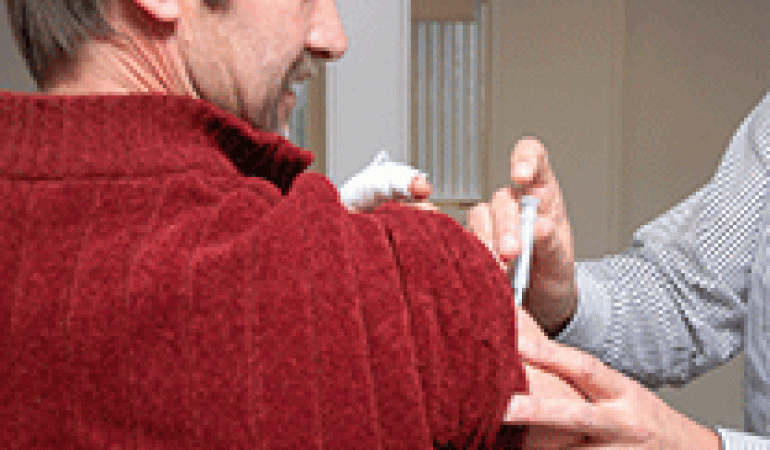
RIVM report 'State of Infectious Diseases 2012' provides insight into the development of infectious diseases in The Netherlands. In addition, developments in other countries that are relevant for the Netherlands are described. The theme for this State of Infectious diseases report is vaccination and its relevance for the Dutch public. The annual report is compiled for policymakers at the Dutch Ministry of Health, Welfare and Sport (VWS).
Outbreaks of Infectious Diseases
In 2012, the outbreaks of pertussis and Salmonella Thompson were the most important events concerning infectious diseases in The Netherlands. Since 1996, every 2 to 3 years epidemics of whooping cough are seen. However, the number 13,000 cases and more, has not been reported before. In the autumn of 2012 there was an outbreak of Salmonella Thompson , with 1,149 reported cases . Four patients deceased. Source investigation revealed that the people who became ill, had eaten smoked salmon from a particular vendor. Finally, in 2012 the new 'Middle East Respiratory Syndrome ( MERS ) Coronavirus was found in a patient in Saudi Arabia . The patient died from the effects of a severe pneumonia , including the kidneys were affected. To date, 163 people are known worldwide to have been infected with the MERS - Coronavirus , from which 71 people died.
Theme: Vaccins and Vaccination Programme
Each year, one particular topic is highlighted. This time the focus is on developments in vaccines and vaccination programmes and their relevance for the Dutch public health. Many vaccines are given through countrywide vaccination programmes, such as the National Immunization Programme (approximately 2 million vaccinations each year) and the National Influenza Prevention Programme (approximately 3,5 million vaccination each year). In addition, vaccinations are given to travellers, medical risk groups, such as people without a spleen, and employees who have an increased risk for an infectious disease through their vocation, such as health care and laboratory personnel. The epidemiology, the mortality and morbidity, and vaccine coverage are described per vaccination programme. Vaccine coverage in travellers, employees and medical risk groups is largely unknown.
The report also gives a description of Dutch population
groups, who refuse vaccination, such as members of Reformed
Congregations and people with an anthroposophical lifestyle. Also,
the attitude and motivation of parents to have their child
vaccinated or not is discussed. Finally, we describe the increase
in the number of elderly and chronically ill people. Their
susceptibility to infections makes them an important group to
consider (new) vaccinations.